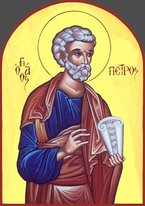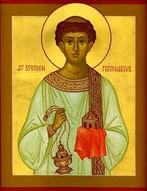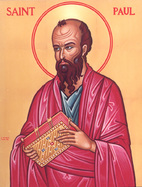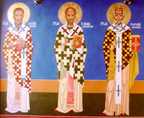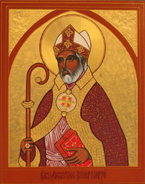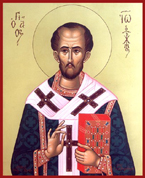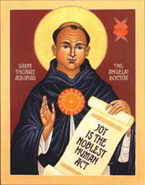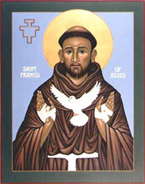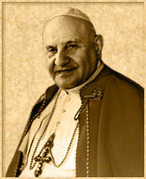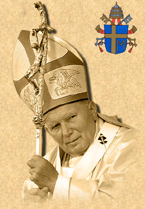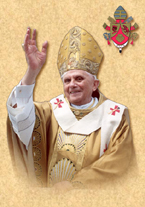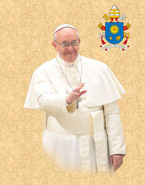 In the past five days, I've been receiving numerous messages on my Facebook wall, through Facebook Messenger, Whatsapp messages, and in person, all being warm wishes and kind birthday greetings from friends whom I have known, some whom I have just got to know, and even many whom I don't really know. These greetings are a stark reminder that I have just hit a major milestone in my life: I have just completed a full four decades of my life. No matter how hard I try to tell myself it's just another birthday, no big deal, I can't shake the reality off that it's a 40th birthday, and that's what makes it significant. A question that kept on lingering in my mind this past week has been, "Sherman, what have you done with your life?" Obviously, my conscience was rearing its head to make me account for how I have been living my life for the past 40 years. Had I been a corporate executive, this question would have been easier to answer. Had I been an absolute necessity in society, holding a profession that was relevant to the socio-economic sector of society, I might have been able to present an impressive resume to my conscience. My success might have been measurable through the big house that I lived in, the ostentatious car that I wasn't driving (because I'd have a chauffeur), the high income that I was earning, and the many highly charged social events that I would have been gracing. But I have no such thing to boast about, and even less to show when it comes to measurable achievements. Had I been an academician, I could have measured my performance by how many batches of students I had taught and raised, how many peer-reviewed journal articles and books I had published, how I had contributed to my university/college rankings, and how far I had come to be recognised as a legitimate authority in my field of research. But I never lasted for more than two years in a formal academic setting, and I found teaching in such a rigid setting quite unappetising as well. Besides, my field of study isn't even a marketable one like Engineering, or Law, or Medicine. I mean, these days, who in their right sense of mind spends five years of their lives studying for a doctorate degree in Theology and Social Theory? Had I been a bishop or a priest, I could still have measured my achievements by how many years I had been in the priesthood, how many parishes I had pastored, and how many church buildings I had built, renovated, or restored. Or maybe, I could have measured my performance by how many Masses I had celebrated. But as it turns out, I'm just a humble deacon sitting right at the bottom of the Church hierarchy. The Holy Church has survived for centuries without lifelong deacons like myself, and it can continue in that manner if it wants to. Deacons are not an absolute necessity for the sustenance of the Church, so there is nothing to brag about. So what have I done with my life? What achievements do I have to show or boast about after having had countless opportunities thrown my way in the past 40 years? To find the answer to that question, I accepted a request from the Franciscan Sisters of the Immaculate Conception (FSIC) in Sabah to spend the afternoon with them yesterday as they too celebrated the 80th anniversary of their founding as a congregation on the exact same day of my birth. Upon exposing Christ in the Blessed Sacrament, I led them in an hour-long reflection and prayer based on the diary of their founder, Msgr August Wachter. As it turned out, this reflection was not just valuable for them, but also for myself. It gave me the answer to the question of whether there was anything worth examining in my life. As I clustered the words of their founder into three categories of expressions, I told these beautiful Sisters that if they could somehow capture these expressions of their founder in the living out of their vocation, they would be continuing with this precious legacy they had received from Msgr August Wachter. The first type of expression I saw in the words of their founder was the expression of PASSION. Passion here refers to suffering (as in the Passion of Jesus Christ). I told the Sisters that suffering was to be an intrinsic part of their vocation, at least in the mind of their founder. Experiences of desolation in the form of poverty, abandonment, ingratitude, and betrayal, were expected to be a common daily experience of their Franciscan life. Here is a small part of what I said to them: Joyful though you are called to be, you are to remember that this deep joy is accompanied by a willingness to suffer for Jesus, for His Church, and for the mission. In my experience, the most difficult part of suffering is when suffering comes from people who are supposed to be on your side. When suffering comes from other sources, it is easier to accept it. But when suffering comes from your own sisters, from priests and bishops (because they too are human), it is difficult to accept. However, this is part and parcel of this mission entrusted to you. After all, it was not the Romans who wanted to crucify Jesus; it was His own people whom He came to save. The second type of expression I saw in the words of their founder was the expression of PASTORAL CHARITY. Basically, this referred to a love for God's People. I explained to the Sisters that in everything they were called to do, whether it be administrative work or pastoral care or teaching, the basic motivation their founder had was love for the people. And love is never an easy thing to give others especially when it may not be reciprocated. It is easy to love people who can love us back, people who can appreciate us and even reciprocate our love. It is always tempting to focus our efforts for such people because we can feel rewarded. It is easier to love our benefactors and people who can thank us for our sacrifices for them. The third type of expression I saw in the words of Msgr August Wachter was the expression of PERSEVERENCE. Living in our God-given vocation is almost a guaranteed hardship, but we are called to a life of resilience. We must never have fantasies about a trouble-free life, because this life is not heaven. Yet. The more we intend to do God's will for us, the more we should expect a life of discouraging problems and ongoing inconveniences as a daily reality. We cannot intend to do the will of God and yet expect the devil to leave us alone to participate in the building of God's Kingdom; he will most definitely be the foremost source of resistance in our lives. And yet despite knowing how difficult life can be, we must live with courage. But courage is a concept that is often misunderstood as an absence of fear, and that notion is a fallacy. Courage does not mean there is no tendency to be afraid. But it means pressing on even when we may be afraid of the dangers that are ahead, trusting in God to accompany us on this mission. Above: The three most recent Mothers General of the FSIC. From left, Mother Grace Deosing (5th Mother General), Mother Aquinas Voon (3rd Mother General), and Mother Cecilia Liew (4th Mother General).
I'm sure you can see how this reflection was totally relevant for me, for a man in my vocation. And perhaps for you as well. I'm very comfortable with the fact that I will never be an absolute necessity to the existence of institutions. I will never be indispensable to the continuity of any established social mechanism in society. Even the Church that I serve will never need me. In that sense, I will never be great. But such manner of greatness would mean nothing to me anyway. You see, greatness cannot always be measured numerically. Sometimes the depth of greatness is too infinite to be measured in numbers. Greatness is an attitude. It is not about achievements, but rather, about the depth with which we have lived our lives. It is about how much of our lives has been poured out for others, how much we have been broken and fed to others. Living our lives with an attitude of greatness is an antidote to mediocrity. Many people have lists of achievements to boast about, but are yet stuck in the rut of mediocrity. A man can be sitting on the top rung of his organisational ladder and yet be little more than mediocre. Another man can be standing at the bottom of the ladder and be great, for he may be the very person holding the ladder upon which sits the mediocre man on the highest rung. As I enter into the next phase of life, my heart is full of gratitude for all of you who have chosen to love me. Thank you for loving me, for knowing that I need to be loved. And thank you also for allowing me to love you and to journey with you in spiritual friendship. I have certainly not been perfect. I have lived my life very imperfectly, sometimes very disgracefully too. But you have accepted me with much grace. In various unspoken ways, many of you have been inspirations for me and have taught me what it means to be great. I really doubt I will live for another 40 years, given the state of my health. But how shall I choose to live with the remaining time given to me? I will certainly not be striving for position, recognition, accolades, awards, and titles (my lengthy official title now is already more than I can manage). But I do want to walk the path of greatness: the path of passion, of pastoral charity, and of perseverance, until the day comes for me to say "I have run the race, I have fought the good fight". Lord, give me strength in my frailty.
2 Comments
maria cheng
17/6/2016 01:23:29 pm
Dear Deacon, what you have written is so readable and touching. You are GREAT in the eyes of God. This Greatness is beyond comparison. You are truly loved by all.
Reply
Elizabeth Chong
18/6/2016 12:51:31 pm
Dear Dr Sherman, happy 40th birthday! You are indeed very much needed by the Catholic church and are doing a marvellous job in spreading the good news and building up our faith and love for our church. Your reward will be great indeed. We love you la. You are a gem to us. Keep up the good works!
Reply
Leave a Reply. |
Categories
All
Archives
December 2021
|
|
FOLLOW DEACON SHERMAN DEACON'S FORMATION FB GROUP
© 2021 Sherman Kuek. All rights reserved.
|

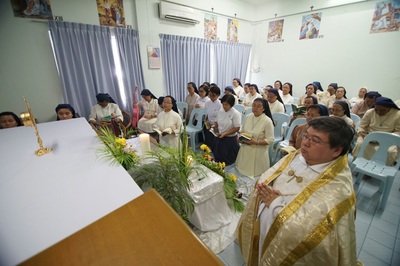
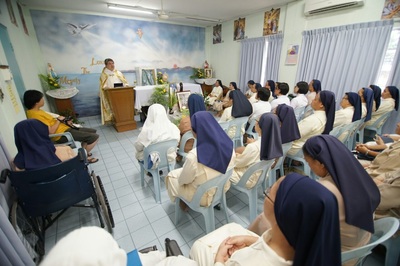
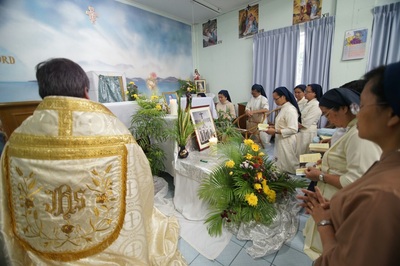

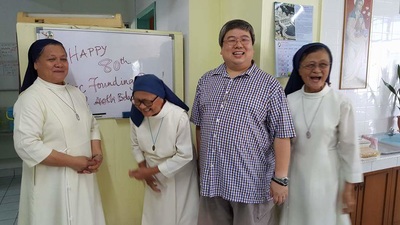
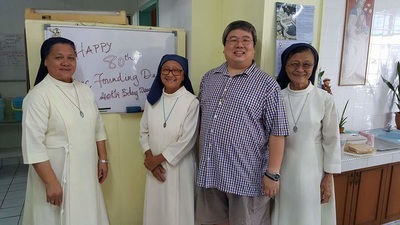
 RSS Feed
RSS Feed
